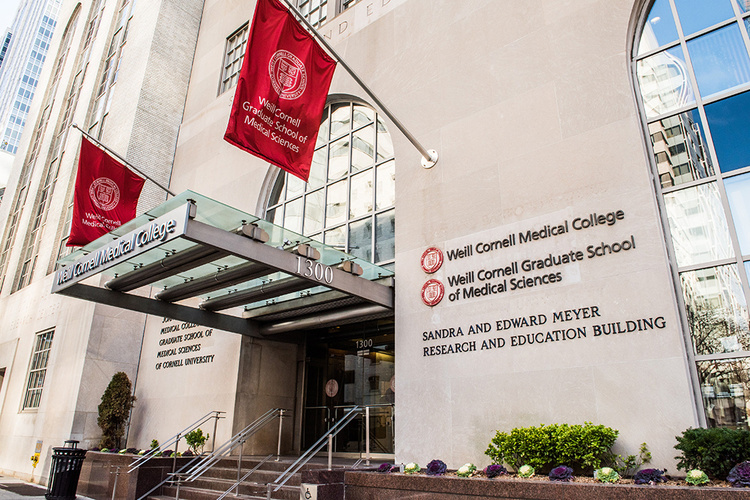
Trial Results: ECOG-ACRIN Research Round-Up
August 14, 2024
Now Enrolling: EA3231 for Patients With BRAF-Mutated Differentiated Thyroid Cancer
August 22, 2024Institution Spotlight: Sandra and Edward Meyer Cancer Center at NYP/Weill Cornell Medicine


 By Jedd D. Wolchok, MD, PhD
By Jedd D. Wolchok, MD, PhD
Chair, ECOG-ACRIN Melanoma Committee
and
Meyer Director, Sandra and Edward Meyer Cancer Center; Professor of Medicine, Weill Cornell Medical College, Cornell University
The Sandra and Edward Meyer Cancer Center (MCC) of Weill Cornell Medicine and NewYork-Presbyterian (NYP) Hospital was founded in 2014 to transform patient care and outcomes through collaboration across multiple disciplines and from bench to bedside. The hallmark of this mission is to address racial and ethnic disparities in cancer incidence, mortality, and quality of life in a highly diverse, densely populated catchment area across New York City (NYC).
The MCC catchment area includes Brooklyn, Manhattan, and Queens, where more than six million people reside. The population is unmatched in ethnic diversity with more than half of people in the catchment area identifying as non-white and/or Hispanic, and many residents struggling with socioeconomic barriers to care, including 17% living below the federal poverty line.
Although there are five National Cancer Institute (NCI)-designated cancer centers in NYC, there is an unmet need in the boroughs of Brooklyn and Queens, which have stark disparities in cancer mortality. For example, cervical cancer mortality is twice as high in Brooklyn than in Manhattan, and breast cancer mortality is 36% higher. These disparities are only greater when viewed through the lens of self-reported race and ethnicity: rates of prostate cancer mortality are 155% higher for non-Hispanic Black men than for white men. Despite the multiple regional NCI-designated centers, fewer than 30% of the cancer patient discharges in Brooklyn and Queens are treated at hospitals affiliated with these centers.
The MCC hospital network includes the two largest hospitals in Brooklyn and Queens, and MCC is actively addressing unmet needs through an integrated faculty model, tailored support to address unique socioeconomic needs, and robust clinical research. In 2023, there were 53 clinical trials open at the MCC hospitals in Brooklyn and Queens, and 97 patients accrued. In the last five years, the number of open clinical trials has doubled, and more than 790 patients have been enrolled in the network-wide biospecimen and registry protocol. Importantly, these patients come from backgrounds that are traditionally underrepresented in research.
In 2022, I was recruited to lead MCC as Meyer Director. I am also Professor of Medicine at Weill Cornell Medical College. As a medical oncologist and physician-scientist, I have led clinical and translational research in immunotherapy to revolutionize melanoma treatment. I also serve as chair of the ECOG-ACRIN Cancer Research Group (ECOG-ACRIN) Melanoma Committee. Since I arrived at MCC, I have been dedicated to expanding access to cutting-edge care in Brooklyn and Queens through research. MCC has four research programs that translate basic science and population studies into the clinic, funded by more than $65M in direct costs for cancer research.
Ari M. Melnick, MD, is a member of MCC whose research is dedicated to investigating epigenetic and transcriptional dysregulation in hematological malignancies. He is the Gebroe Family Professor of Hematology/Oncology and a Professor of Medicine, Immunology and Pharmacology at Weill Cornell Medical College. At ECOG-ACRIN, Dr. Melnick serves as the voting principal investigator for our institution on the Principal Investigator Committee, as well as co-principal investigator of the ECOG-ACRIN Leukemia Integrated Translational Science Center. Established in 2019, the center generates, coordinates, and leads translational studies in leukemia across the NCI National Clinical Trials Network.
MCC research is informed and supported by a robust community outreach program with three integrated forums for patients, caregivers, and community members to learn about and shape MCC research. The Patient and Family Advisory Council is working to improve patient care and experience, helping researchers ensure that their trials are accessible. The Community Advisory Board, established in 2020, engages community stakeholders to maximize the impact of our research in the community. Most recently, we established a Research Advisory Council to help researchers design studies that meet patient and community needs.
Through these partnerships, MCC will continue to expand access to care that is driven by groundbreaking, transdisciplinary research that will improve the prevention, detection, and treatment of cancer within our community and across the world.
![ECOG-ACRIN logo[19516]275×75](https://blog-ecog-acrin.org/wp-content/uploads/2021/03/ECOG-ACRIN-logo19516275x75.png)
